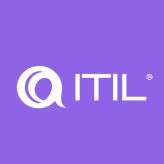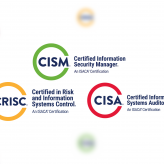

ISTQB® CTFL comes with a new module
26. 7. 2023
ISTQB® is currently releasing a new version of the ISTQB® CTFL (Certified Tester Foundation Level) 4.0 module, as well as several changes from the previous version 3.1 that you should not miss.
What does the new version of ISTQB® CTFL 4.0 bring?
- Total training time: to cover the new curriculum, the minimum training time will need to be increased from 1005 minutes to 1155 minutes. Therefore, the training will remain three days.
- ISTQB CTFL Agile Tester module merge: the new curriculum contains parts of the previously separate ISTQB CTFL Agile Tester module. This stand-alone module is likely to be dropped from the ISTQB certification scheme in the future.
- Changes to sub-chapters: several chapters have been updated and reorganized. Some topics have been shortened, others renamed or moved to other parts of the syllabus.
Let’s look at specific changes to the syllabus:
- Chapter 1. Fundamentals of Testing: a subchapter has been added to compare different roles in testing, and a subchapter on the psychology of testing has been removed.
- Chapter 2. Testing in the Software Development Life Cycle: New “best practices” for testing applicable in any lifecycle model are summarized. The topic of impact analysis has been dissolved into other chapters.
- Chapter 3. Static Testing: The chapter has been shortened and the topic of revision techniques has been removed. The topic of early and continuous feedbacks from stakeholders has been added.
- Chapter 4. Test Analysis and Design: this chapter was slightly expanded and renamed to Testing Techniques. The Use Case Testing Technique has been removed and some topics from the ISTQB CTFL Agile Tester module have been included in the new chapter on Collaborative Testing Approaches.
- Chapter 5. Managing Testing Activities: The title of this chapter has been modified to reflect the new goal of covering the agile world. The explanation time has been increased and some topics have been removed or moved to other parts of the curriculum.
- Chapter 6. Testing Tools: the title of the chapter has been modified and the chapter has been shortened. Specialized subsections on test execution tools, test management, and model-based testing have been removed.
The changes were made primarily to ensure that the new course prepares students for current requirements and practices in software testing. Regarding the validity of the certificates, holders of earlier versions of the CTFL certificate remain certified and are not required to retake the exam. However, if they want to demonstrate their knowledge of the new skills covered in this new version, they can choose to take the CTFL 4.0 exam. The validity of older versions of CTFL certificates remains open-ended.
We believe that the new version of the CTFL 4.0 course will bring you more up-to-date and relevant knowledge in software testing that will meet the current trends and requirements in the IT industry. We look forward to seeing you at the ISTQB® CTFL course!
Similar articles

The new ITIL® Version 5 is here!
29. 1. 2026

